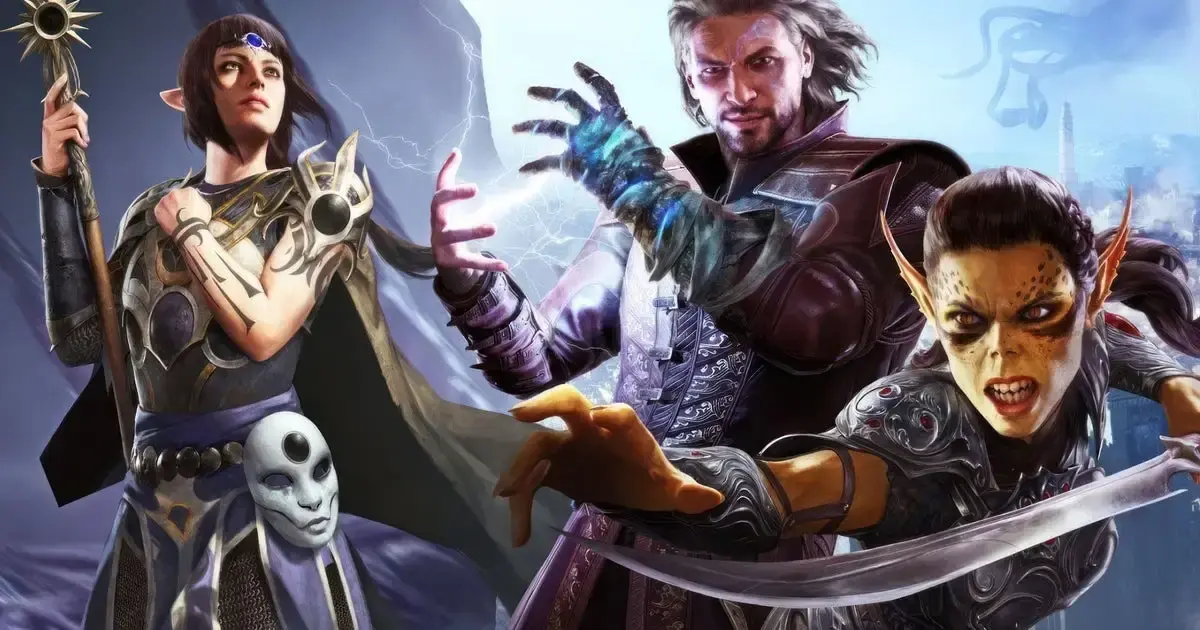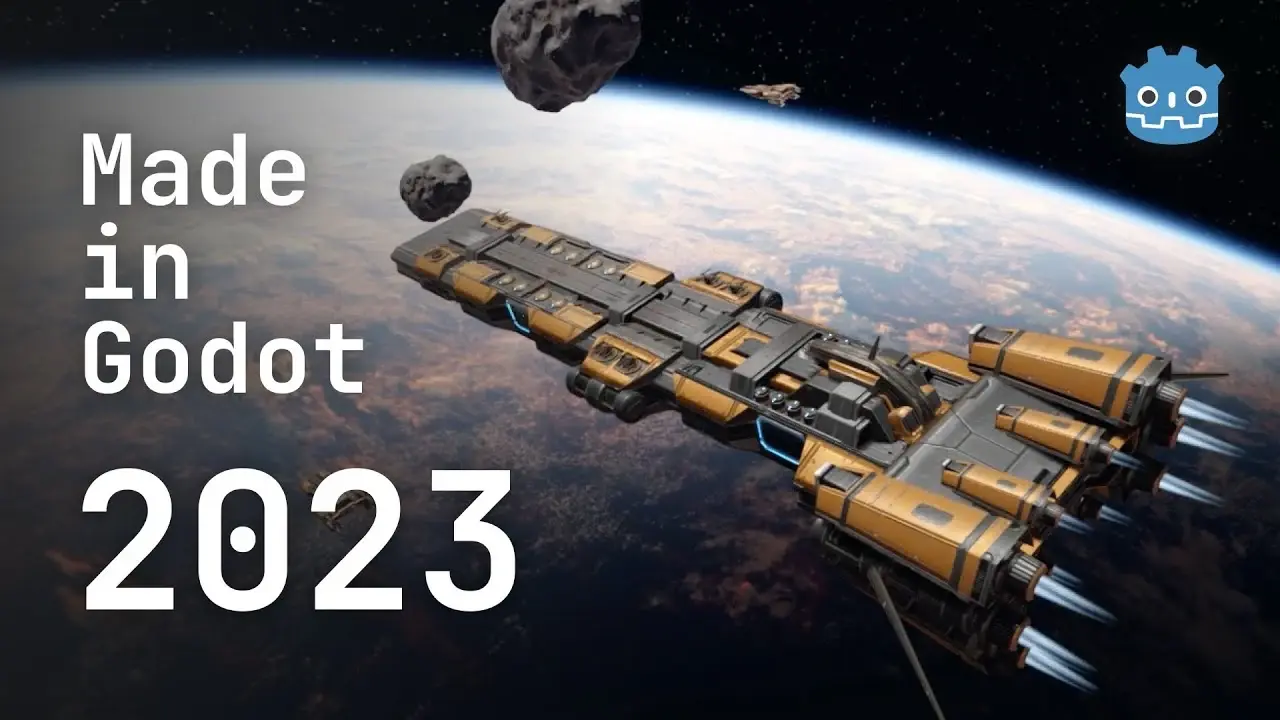Not all of them. In recent years, virtually all arcades have been powered by standard gaming PCs (see for example the infamous Half-Life 2 arcade). In the past, it wasn’t unheard of for some arcades to have nearly identical hardware compared to home consoles. The Neo Geo arcade for example is running the exact same code as the home console (although in this case, the arcade came first). There have also been edge-cases, like the Namco System 11, which is using only slightly modified PS1 hardware (primarily in the sound department) in order to drive down costs.
- 6 Posts
- 94 Comments
Repacks make installing the game with its bazillion DLCs a breeze these days.
Reminds me of my younger sibling inheriting my first PC - 486 with a 500 MB hard drive that I had assembled from several scrap computers - and trying to install this game to it. It did just about fit and there was even enough RAM (48 MB instead of the minimum 32), but the CPU wasn’t compatible, since the game required the MMX instruction set.
Each Sims game is quite different. The biggest difference is between Sims 1 and 2 simply due to the change from isometric 2D to 3D graphics. Not the first game in the genre to have 3D graphics and they weren’t even particularly impressive for the time nor good compared to its competitor, but the charming animations and attention to detail make it a far more enjoyable experience than the comparatively sterile predecessor. Sims 2 ended up becoming an evergreen with very long legs, to the point that people are still playing it, although it helped that EA distributed the complete version with all add-ons (the game is older than the term DLC) for free for a while (you can still find it if you know where to look).
Sims 3 was fundamentally different from Sims 2. Gone were the isolated homes of the predecessor (initially in Sims 2, you couldn’t even see your neighbors’ homes unless you were on the map screen; later they added in low-res stand-ins) and instead, it’s an open world game where you can see your Sim commute to work in real-time. Neighbors can be visited without going through a loading screen - it all feels more organic as a result. Customization saw a huge upgrade as well, the AI was improved, etc. Sounds nice in theory, but the problem was that it was too ambitious for PCs of the time. This series has traditionally attracted non-gamers who don’t deeply upgrade their machines all that often and instead play on laptops bought for homework or old rigs inherited from big brothers. Sims 1 ran on a toaster, Sims 2 on a pizza oven with some kind of GPU grafted to it - whereas Sims 3 was one of the most demanding games of its time in order to facilitate gameplay changes that few people actually asked for and rounded, bloated looking Sims that are somewhat offputting. It was still a massive success and a huge hit with modders as well, but Sims 2 remained popular due to its more focused nature, the fact that it ran on anything and the fact that it was complete with a massive library of add-ons that took years to be replicated in Sims 3.
Sims 4 reset the series back to Sims 2, but went too far initially, limiting player freedom in regards to neighborhood creation. Instanced homes returned, customization features and open world of Sims 3 were cut, the AI saw a massive improvements, Sims didn’t all look obese anymore, hardware requirements were modest again - but at the price of having incredibly intrusive DRM, an attempt to monetize the proud modding community and being very bare-bones in the beginning, requiring years of DLCs to reach feature-parity with Sims 2 and 3. IIRC, even pools - an absolutely essential part of Sims lore - were missing initially. All of the improvements to the building mechanics in particular were overshadowed by EA’s corporate nonsense. It’s come a long way since though. Just like with the predecessors, buying all DLC at once will make you poor - but the base game is free now and the actual intention is that you only buy the DLC that have features or items you care about. The modding scene is as vibrant as ever, making any non-feature DLC unnecessary anyway.
This series is an interesting and unique phenomenon. It’s a prime example of something that only ever truly works on PC. All of the many console, mobile and browser spinoffs and ports were nothing but mere blips on the radar, because fundamentally, it can only work on a platform as open as the PC. It primarily attracts female players who rarely play anything else, yet dive deep into modding and modifying every little aspect of these games like the most hardened PC nerds. It started out and still is in many ways a faksimile of ideal American suburbia, although enhanced by both some quite subversive humor and subverted by an astonishing level of player freedom that goes against the conformity of the real world - while at the same time replicating the fads, consumerism, cliques, feuds and other less wholesome aspects of the real world through its behemoth of a community. It’s ultimately a platform for individual creative expression and the worlds (both in-game and outside of it) that emerge as a result of it, a sandbox that was only ever bested by Minecraft, which literally broke everything down to its individual building blocks. Each game and its DLCs become more like car payments to seasoned players, something you pay for so that you can travel where you want to go, which in turn keeps the experience fresh, finances further development and prevents the community from getting stagnant as it has to learn to adapt to changes from the developers.
I’ll end this here. This wasn’t meant to turn into an essay and now my fingers hurt, because I typed all of this nonsense on a touchscreen.

 2·2 months ago
2·2 months agoIt’s “Numen: Contest of Heroes”. The game actually came out three years after Titan Quest.
This is hardly the most highly regarded game in the world and flew very much under the radar of most players, but I liked it quite a bit back then (even though I’m not the biggest fan of MMOs), to the point that I wrote a short review praising it on a (now defunct) forum I was frequenting at the time. This review (not mine) on Steam sums up why it feels so much like an MMO:
It looks like Titans Quest, but It plays very much like an MMO. Tab targeting, auto-attack, skills hotbar, camps of mobs you have to carefully pull, etc. If you aren’t in to MMO-style combat, you may not like this. The combat reminds me of Vanguard and several others. Fights are quicker though, mobs your level usually die in 10-15 seconds.
https://steamcommunity.com/profiles/76561198042628923/recommended/60800/
I’m curious as to how well it holds up. Perhaps I’ll reinstall it later today.

 2·2 months ago
2·2 months agoThis would kind of defeat the point, wouldn’t it?

 3·2 months ago
3·2 months agoThere was a hack and slash game set in Ancient Greece that very much felt like a single player MMO due to its mechanics. I think it came out a few years before Titan Quest and had a third person perspective. I’ll try to find it again later.

 3·2 months ago
3·2 months agoI wonder if this would make swapping in assets from the Xbox remaster of Conker possible/convenient. I suspect it depends more on how accessible the files of the remaster are.

 14·2 months ago
14·2 months agoSo many Indie developers are making the mistake of thinking they’ll be the next [insert currently successful one-man dev here] and banking their careers and life savings on it. 99.999% of them are not.

 6·2 months ago
6·2 months agoArkane Austin was hemorrhaging talent before and during Redfalls development. In the end, there wasn’t much left of the studio that had developed the Prey reboot. Hi Fi Rush and Evil Within are critical darlings, but the former only got its player base thanks to Game Pass and both didn’t sell enough to keep a studio of more than 130 people alive (for perspective, that’s about as many people as worked on Skyrim).
I get how sad it is to see these studios disappear and it’s of course devastating for individual employees (at least in the short term), but it isn’t all that surprising. Also keep in mind that the talent doesn’t evaporate into thin air. We as players should pay far more attention to game credits and individual developers than the studios these people are working for. Talented developers are very likely to reappear elsewhere and continue making great games.
I think the blame for the demise of these studios is at least equally shared between Zenimax, Microsoft and the studios themselves. Blaming it all on Microsoft is a bit simplistic.

 3·2 months ago
3·2 months agoBackwards compatibility is great though. It’s the most convenient way of playing console exclusives from the 360 generation in particular, especially those that run at higher resolutions now.
I’m usually accused of questioning things too much and overdoing it, so I’m not sure what to make of your attempt at trying to insult me.
I also find it peculiar that none of you decided to actually read the page and the many individual pieces of evidence that support the claim that this supposed aid organization has fundamental issues, but instead shoot the messenger (either me or NGO Watch).
It’s very disappointing to see this site funnel funds towards a highly questionable organization with close ties to Hamas and other terrorist organizations:
https://www.ngo-monitor.org/ngos/palestine_children_s_relief_fund_ohio_/

 3·3 months ago
3·3 months agoIf you’re interested in an Eastern European take on Bioshock/Half Life, try the Metro series instead, if you haven’t already.
If you want to play an equally fascinating and highly flawed Eurojank shooter that is actually endearing, play You Are Empty. It’s only available as abandonware and needs some tweaks to work on modern systems:

 2·3 months ago
2·3 months agoIt’s clunky, but not in an indearing eurojank way. Absolutely repulsive writing doesn’t help. I wouldn’t recommend it.

 3·3 months ago
3·3 months agoIt’s not even that quality mods need fake voice acting. There’s a vibrant modding scene surrounding the Gothic series - and several modders managed to convince the original German voice actors to lend their voices.

 5·3 months ago
5·3 months agoThe only way to limit the damage is the tedious old-fashioned way: An honest debate, thorough public education, followed by laws and regulations, which are backed up by international treaties. This takes a long time however, the tech is evolving very quickly, too quickly, self-regulation isn’t working and there are lots of bad actors, from pervy individuals to certain nation states (the likes of Russia, Iran and China have used generative AI to manipulate public opinion) which need to be contained.

 11·3 months ago
11·3 months agoThis problem cannot be solved by tools, because you can use these tools to make AI-generated content more realistic (adversarial training).
What are the exact specs (CPU, GPU, RAM, SSD yes or no) of your PCs? “Kinda weak” kinda covers an enormous and very subjective spectrum.



My rule would be simple: The only ships allowed to land are those crewed by a captain who can pronounce this accent-free. Every one else gets acquainted with the business end of the Planetenverteidigungskanone.